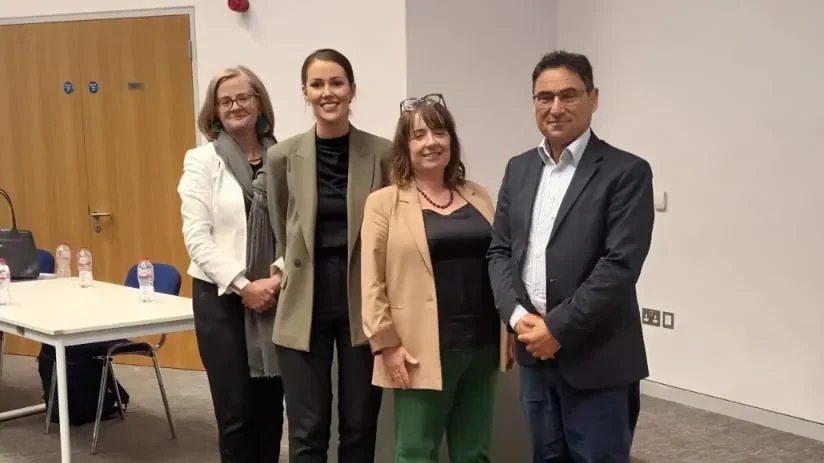

Professor Richard Capobianco's Keynote Presentation at School of Human Development Interdisciplinary Symposium
Professor Richard Capobianco, Professor of Philosophy and Meehan Humanities Scholar at Stonehill College in Massachusetts, USA gave the keynote presentation, Spatial dimensions of Being in the later Heidegger at the School of Human Development's Interdisciplinary Symposium
The Spatial Turn for Education, Wellbeing and Hermeneutics: The Question of Being on June 6th 2024. Dr. Anne Davenport, Research Scholar, Harvard University was the discussant, focusing on spatial dimensions in the work of Jean-Louis Chretien. The session was Chaired by Professor Paul Downes, School of Human Development.
The parallel sessions on Expanding Spatial Horizons of Being and Experience in Education: The Arts and Social, Emotional Education and on Space and Hermeneutics were respectively chaired by Dr. Marie Flynn and Dr. Eileen Brennan, School of Human Development, with presentations including those given by Dr. Jones Irwin, School of Human Development, Dr. Una McCabe, Head of School of Arts Education and Movement, DCU, Professor Carmel Cefai, University of Malta and Dr. Susan Pike, Trinity College Dublin.
This blended (online and face to face) Symposium gathered interdisciplinary contributions about space and spatial issues in both hermeneutics and phenomenology, to inform approaches in the humanities and social sciences, paying particular attention to education research. The proposed spatial turn explored through hermeneutic and phenomenological vantage points across continental philosophy, psychology, education and geography, seeks to promote cross-disciplinary discussion about spatial concepts and current spatial issues.
A particular focus was held on Space and Being, as part of a concern with expansion of understandings of being beyond the Cartesian cogito and selfconsciousness that still dominate in wider educational discourse on wellbeing, including in UNESCO documents such as the seminal Faure Report 1972 Learning to Be. Broader spaces of experience were being sought, reconfiguring diametric oppositional spatial splits between nature and culture. The role of the arts for expansions of spatial understandings and capacities for experience were interrogated as part of a transformative agenda for education of the future.
Professor Richard Capobianco with response by Dr Anne Davenport

